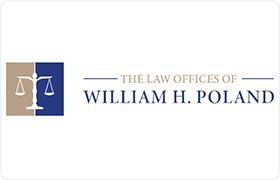Chapmansboro Juvenile Law Lawyer, Tennessee
Sponsored Law Firm
-
 x
x

Click For More Info:
-
Law Offices of William H. Poland
408 Franklin St Clarksville, TN 37040» view mapCriminal Defense Law Sound, Professional, & Timely Service
As your attorney, you can be assured that we will use our best reasonable efforts to conclude your matter favorably and to keep you advised of the status of your case.
800-810-3461
Spencer Hamlin
Criminal, Juvenile Law, Bankruptcy, Banking & Finance
Status: In Good Standing Licensed: 13 Years
Daniel Palmer Bryant
Juvenile Law, Family Law, Divorce & Family Law, Criminal
Status: In Good Standing Licensed: 15 Years
Daniel Bryant
Juvenile Law, Family Law, Divorce & Family Law, Criminal
Status: In Good Standing Licensed: 15 Years
Joe Rogers Johnson
Juvenile Law, Estate Planning, Family Law, Elder Law, Federal Appellate Practice
Status: In Good Standing Licensed: 71 Years
William Joseph Sweeten
Family Law, Wills & Probate, Juvenile Law, Federal Appellate Practice
Status: In Good Standing Licensed: 18 Years
William Joe Sweeten
Family Law, Wills & Probate, Juvenile Law, Federal Appellate Practice
Status: In Good Standing
 Will Poland Clarksville, TN
Will Poland Clarksville, TN Practice AreasExpertise
Practice AreasExpertise
